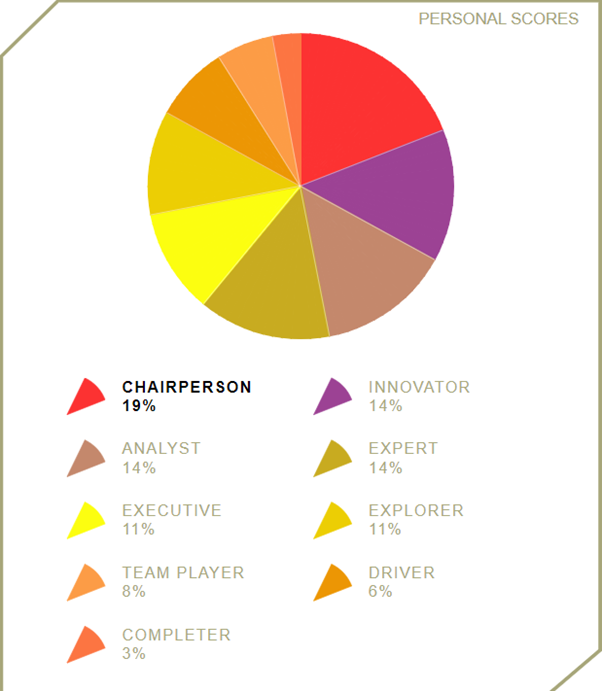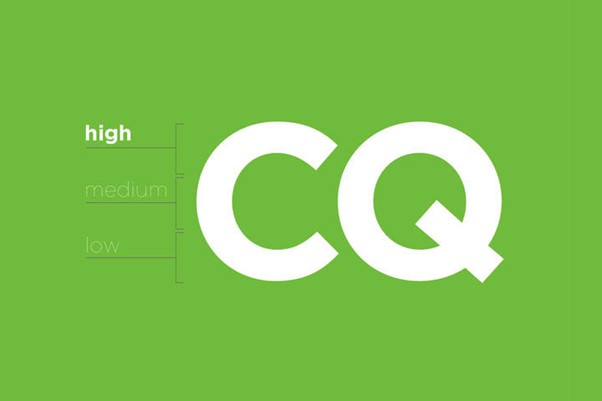$20 Bonus + 25% OFF CLAIM OFFER
Place Your Order With Us Today And Go Stress-Free
Develop a Self-Reflective Portfolio that represents your current status in acquiring the recognised traits and characteristics of an effective leader, by
a) undertaking a series of relevant leadership self-assessment tests
b) reviewing theories and literature on effective leadership traits, characteristics, and behaviours, and
c) then applying these onto your own leadership development via the creation of a leadership development plan, particularly when applied in the global hospitality industry.
As the first few weeks of our subject theory and discussion outlines, undertaking self-assessment and reflection are critical elements of becoming an effective leader. This assessment will help you to identify the effective leadership traits, characteristics, and approaches relevant to your leadership development.
This examination aims to provide a comprehensive Self-Reflective Portfolio that examines the intricate nature of effective leadership. The portfolio's objective is to analyze leadership traits, attitudes, and behaviours that support success in various circumstances by fusing objective data with subjective opinions. The reader can gain important insights into the dynamic nature of leadership by examining how one's past has influenced their current leadership style.
Through a thoughtful review of one's leadership style or practical leadership experiences, the portfolio attempts to develop oneself and one's leadership talents. By reading the contents in the portfolio, the reader will get a deeper understanding of successful leadership and discover techniques for honing their leadership abilities, putting them on the road to greater career and personal success.
Leadership is the capacity to motivate others to strive towards a common objective or vision while exhibiting a range of character traits and behaviours that boost the chance of success. Being a leader means having the communication skills necessary to persuade, motivate, and guide your team to success. Successful leaders know their qualities, those of their subordinates, and the greater company (DuBrin, 2018).
Leaders must first exhibit exceptional self-awareness and emotional intelligence levels to understand their traits, weaknesses, values, and emotions. Strongly self-aware leaders may more effectively motivate followers by utilising their strengths and minimising their faults. A leader with high emotional intelligence can understand, perceive, and appropriately respond to the emotions of others around them, which in turn fosters solid relationships and trust.
Two further qualities of influential leaders are adaptability and resilience in facing challenges and uncertainty (Blackburn, 2011). They possess the capacity to remain composed under duress, make intelligent decisions, and adapt their leadership style to the demands of their subordinates. A leader with practical verbal and nonverbal communication skills can articulate a compelling vision, provide clear instructions, and actively listen to the issues and viewpoints of the people they supervise (Bush et al., 2021).
A leader must collaborate effectively and establish enduring relationships with others. Leaders that value collaboration and foster an environment of transparency and trust motivate their followers to put their all into their work and forge stronger bonds with one another. They value varied points of view and play to the strengths of each team member in order to promote synergy and innovation.
In the end, effective leadership involves more than just advancing oneself; it also involves fostering the growth and success of those who report to you (Daft, 2018). The accomplishments and growth of individuals who follow a leader are markers of that leader's impact. By providing an environment of optimism and encouragement, leaders may motivate their teams to reach their maximum potential and generate a sense of success among all team members.
A wide range of character traits and behaviours, together known as leadership, enable people to influence others and inspire them to strive towards common objectives. It necessitates self-awareness, emotional intelligence (EQ), toughness, adaptability, communication skills, the ability to motivate teamwork, and the capability to forge genuine relationships with people (Högberg, 2021). These traits make leaders more effective in bringing about positive change in their companies and communities.
Also Read - Leadership Management Assignment Help
I may evaluate how my prior leadership experiences influenced the leader I am now by reflecting on past responsibilities. Using the benchmarking technique mentioned above, I have compared my past performance to the traits and behaviours often linked with effective leadership. I now understand my capabilities better and can see where I need to grow thanks to this activity.
My defining experience was leading my high school sports team as team captain. I can now successfully interact with others and motivate them to cooperate to achieve a common goal due to this chance. Through this experience, I also improved my self-awareness and self-management abilities by learning how to balance my goals with the team's.
Another significant experience I had throughout my undergraduate studies was working as a teaching assistant. My time management skills have improved due to my experience in this role, and I am now more prepared to handle unanticipated circumstances when they occur (Hobbs, 2020). I also improved my interpersonal and social skills because I coordinated between the professor and the students.
However, there have also been obstacles that have prevented me from developing as a leader. I got the chance to oversee a collaborative project while I was a graduate student. I could not communicate effectively with my staff and create clear expectations for them (Keltner, 2016). As a result, I had hoped to complete the job more successfully. I lack the social intelligence and interpersonal skills to be a successful team leader.
I have discovered via reflection that my leadership skills might require some fine-tuning. I am particularly conscious of the need to develop self-awareness and self-management abilities to be aware of my strengths and weaknesses and be in charge of my thoughts and behaviours.
I also recognise that I must develop my social awareness and relationship management skills to relate to and inspire others around me more. I have gained insight into my leadership strengths and areas for improvement by assessing my leadership experiences in the context of the literature's descriptions of influential leaders' characteristics, traits, and behaviours. I plan to increase my leadership skills in these areas since one of my future leadership goals is to extend my leadership capacity.
Also Read - Change Management Assignment Help
I do a SWOT (Strengths, Weaknesses, Opportunities, and Threats) analysis of my situation to evaluate my results. This framework is helpful because it enables me to understand how my unique traits and the results of standardised tests influence my potential to lead.
My high ratings on the personality test's Self-Awareness and Social-Awareness sections reflect high emotional intelligence. These findings align with what is known about effective leadership from the literature, which strongly focuses on self-awareness and empathy (Torren University Australia, 2020).
The fact that I scored highly on the Rosenberg self-esteem exam also suggests that I have a positive self-view, which can only help to strengthen my confidence and leadership abilities (Szende, Bagnera, & Cole, 2020).
However, I have to be truthful about my shortcomings and areas for improvement. My low scores on the Emotional Self-Management and Social Relationships Management subscales of the Emotional Intelligence Scale (Blackburn, 2011) show that I have the opportunity to grow in these areas. This is consistent with what the research teaches us about effective leadership, emphasizing self-management and relationship-building skills.
The evaluation results provide a framework to build my leadership talents in certain areas, considering the potential. I will develop as a leader by recognising my strengths and opportunities for development in emotional intelligence. This kind of self-awareness is crucial for growth and advancement (Erwin & DeVoll, 2021).
Additionally, the results highlight the risks that demand my attention. The risk is underutilizing my leadership skills or allowing my shortcomings to keep me back. Knowing about these difficulties will enable me to take action to overcome them and operate at my leadership peak.
When rigorously studied, a leader's self-evaluation results reveal a complicated mix of favourable and adverse elements. I can better relate to others and satisfy their needs by using my self-knowledge and social awareness, two aspects of emotional intelligence (Blackburn, 2011). I also can become a more effective leader if I concentrate on enhancing my capacity for relationship-building and self-management.
Due to this evaluation, I now have a better grasp of my leadership style, which will help me create my reflective portfolio. It gives me a foundation to create strategies for improving my leadership abilities via reflection, self-examination, and continued education.
I want to build on my strengths, overcome my weaknesses, seize opportunities, and reduce risks to become a more effective and persuasive leader in various contexts and with various stakeholders.
| Strengths | Weaknesses |
|
|
|
Opportunities |
Threats |
|
|
Table 1: SWOT Analysis
(Source: Researcher)
|
Development Goals |
Strategies |
Timeline |
Success Indicators |
|
Improve Self-Awareness |
|
Six months |
|
|
Develop Emotional Intelligence |
|
12 months |
|
|
Enhance Communication Skills |
|
Six months |
|
|
Expand Knowledge Base |
|
Ongoing |
|
Table 2: Leadership Development Plan
(Source: Learner)
This study has provided a complete examination of how to be a successful leader through self-reflection, using personality assessments, and developing a growth strategy. The paper begins by describing effective leadership based on literature research before outlining the key characteristics, traits, and behaviours characterizing effective leadership.
The focus of the piece was the author's critical assessment of how previous leadership experiences affected the growth of his or her leadership qualities. The results of personality tests such as the CQ, EI, Team Roles, and Rosenberg self-esteem tests were examined in the next section of the report to uncover the person's strengths and potential growth areas.
The next phase was to conduct a SWOT analysis, which resulted in formulating a leadership development plan with specified goals, strategies, deadlines, and success metrics. By carefully addressing these aspects, the study aimed to ease the reader's journey toward developing their leadership potential via reflection and purposeful exercise.
DuBrin, A. (2018). Leadership: Research, findings, practice, and skills (9th ed.). Cengage Learning. https://ebookcentral-proquest-com.torrens.idm.oclc.org/lib/think/reader.action?docID=6351096
Bush, J. T., Welsh, D. T., Baer, M. D., & Waldman, D. (2021). Discouraging unethicality versus encouraging ethicality: Unravelling the differential effects of prevention‐ and promotion‐focused ethical leadership. Personnel Psychology, 74 (1). 29–54. https://lesa.on.worldcat.org/search/detail/8924594743?queryString=Discouraging%20u
Daft, R. L. (2018). The leadership experience (7th ed.). Cengage Learning. https://ebookcentral-proquest-com.torrens.idm.oclc.org/lib/think/reader.action?docID=6351289
Högberg, K. (2021). Between hope and despair; sense giving and sensemaking in hotel organizations during the covid-19 crisis. Journal of Hospitality and Tourism Management, pp. 49, 460–468. https://www-sciencedirect-com.torrens.idm.oclc.org/science/article/pii/
Hobbs, A. (2020). The ethics of profiting during a pandemic. In SAGE Business Cases. SAGE Publications., Ltd. https://sk-sagepub-com.torrens.idm.oclc.org/cases/the-ethics-of-profiting-during-a-pandemic
Keltner, D. (2016, October). Don't let power corrupt you, Harvard Business Review. Harvard Business Publishing. https://hbr.org/2016/10/dont-let-power-corrupt-you
Torrens University Australia (n.d.). Creating effective teams. https://rise.articulate.com/share/
Szende, P., Bagnera, S. M., & Cole, D. C. (2020). Human resource management in hospitality cases. Taylor & Francis Group. https://ebookcentral-proquest-com.torrens.idm.oclc.org/lib/think/detail.action?docID=6208559
Blackburn, S. (2011). Relationship centred leadership and management. Nursing & Residential Care, 13(10), 498–499. https://lesa.on.worldcat.org/search/detail/5813502157?queryString=relationship%20leadership&
Erwin, M. S., & DeVoll, W. (2021). Leadership is a relationship: how to put people first in the digital world. John Wiley & Sons. https://learning-oreilly-com.torrens.idm.oclc.org/library/view/leadership-is-a/9781119806134/




Are you confident that you will achieve the grade? Our best Expert will help you improve your grade
Order Now










